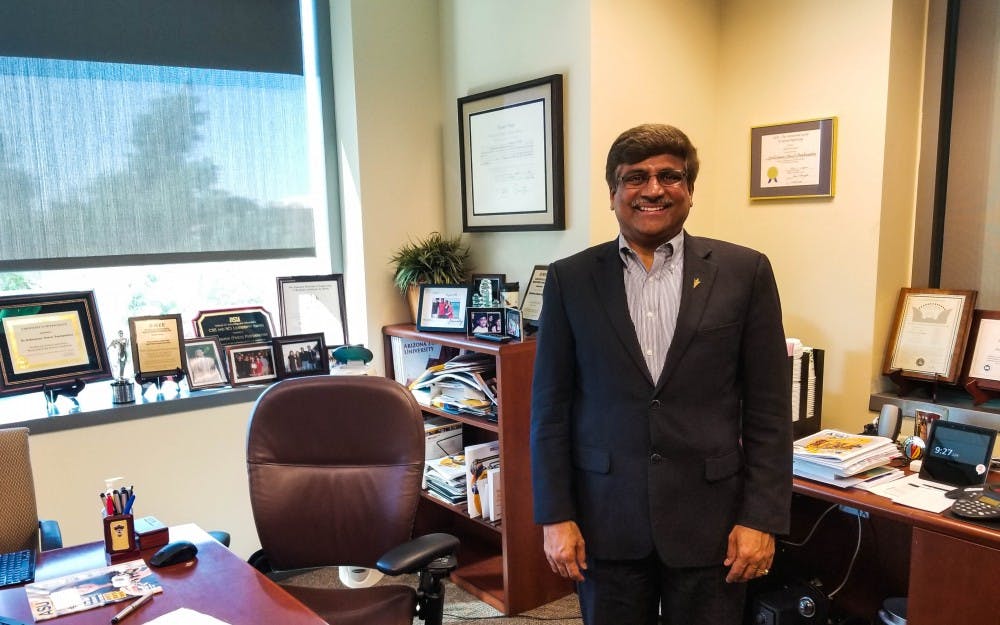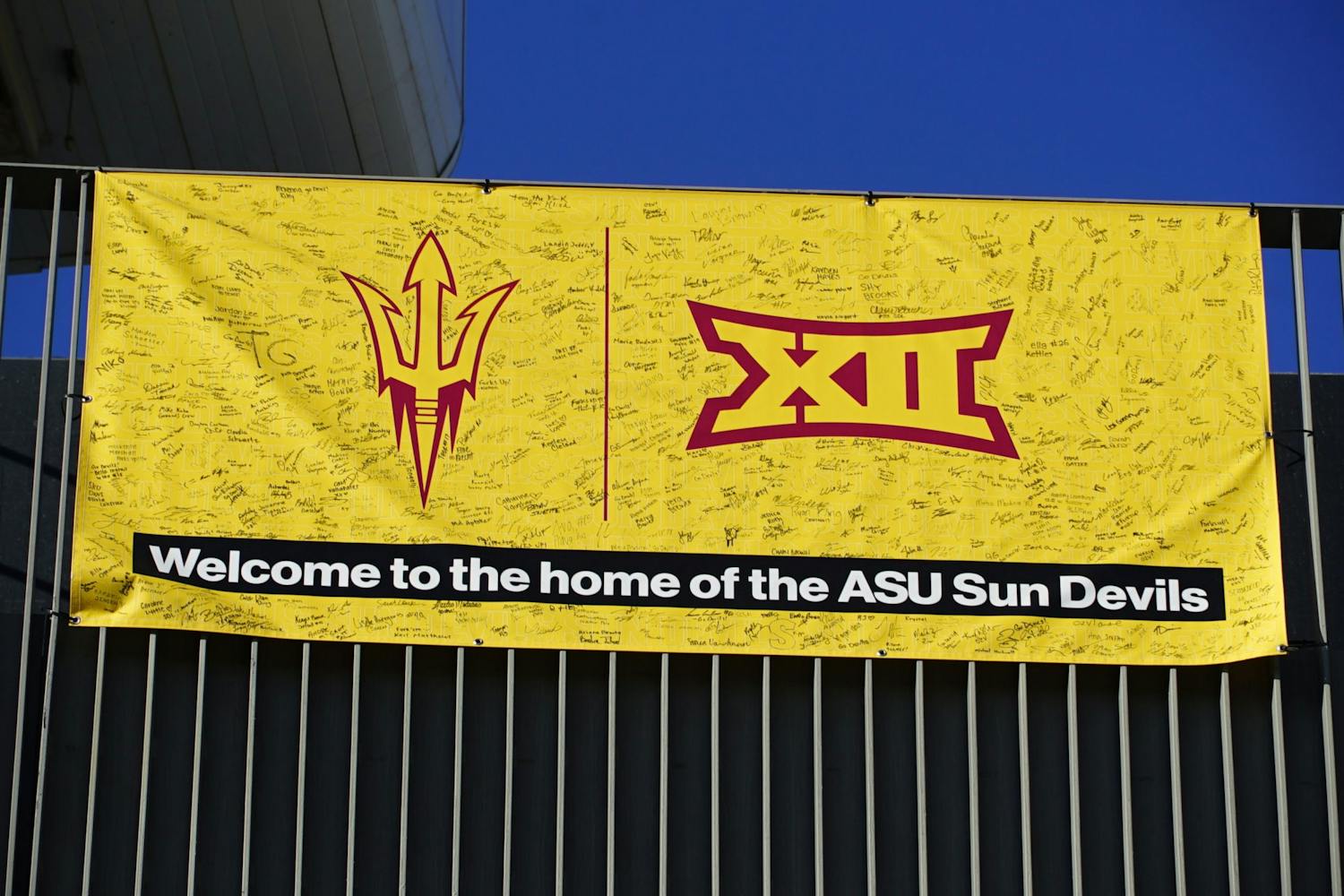A new series of lectures and educational videos is giving a platform to cutting-edge ASU research to help it stand out in a crowded field of innovations in the sciences and humanities.
ASU KEDtalks, which stands for Knowledge Enterprise Development talks, spotlight all the innovations and research at ASU, from scientific breakthroughs to advancements in the arts.
The talks, which are recorded in front of a live audience at Arizona PBS and taped by ASU students, were launched in the fall of 2016 to highlight KED research.
The videos are similar to TED Talks, the popular lectures by public intellectuals and academics published on YouTube and other platforms, but are all given by ASU faculty and researchers.
Sethuraman “Panch” Panchanathan, executive vice president of KED and chief research and innovation officer at ASU, said research and innovation at ASU has a positive impact on communities locally, nationally and internationally.
"Often, we forget that research is driven by people just like us who are passionate about what they do and how they can make a difference in the world," Panchanathan said. "ASU KEDtalks shine a light on the people behind the research and their stories about why they do what they do."
The research the talks cover encompasses a variety of subjects such as the humanities, arts, health, science and technology.
"At the university level, the colleges work together to solve problems for humanity by bringing all the inspirations together," Panchanathan said.
The takeaway is that multidisciplinary approaches are often necessary to solve complicated issues. Panchanathan gave the example of providing universal clean water, a task he said would require cross-disciplinary research.
"In order to find real solutions, you would need to find people in engineering, science, policy, design and economics," Panchanathan said. "All of that would need to come together to find a sustainable solution for the provisioning of water."
He said KEDtalks serve as a mechanism to present ideas to a wider audience that may be unaware or unfamiliar with the research.
In addition to representing faculty research, Panchanathan said the KEDtalks will eventually also feature projects and research by ASU students.
Meenakshi Wadhwa, professor at the School of Earth and Space Exploration and director of the Center for Meteorite Studies, said KEDtalks provide a window into the breadth of initiatives that ASU is involved with and are designed to be accessible to anyone interested in learning or broadening their horizons.
"It allows students to learn about research programs and initiatives at ASU that they can potentially become involved in," Wadhwa said. "It allows faculty to reach students and to reach even beyond ASU to communicate the new and exciting developments in their field."
In her KEDtalk, Wadhwa discussed her project to create a precise timeline of the formation of the solar system, beginning around 4.6 billion years ago.
"This work really helps to define the context for everything else that followed, such as the formation of the planets and the origin of life on Earth, and sets the stage for a better understanding of the origin and evolution of our solar system," Wadhwa said.
Wadhwa said the one message she hopes students will take away from her KEDtalk is that science is not an endeavor that is limited to a few researchers and scientists working in laboratories.
"Anyone and everyone who looks up at the night sky in wonder and is curious about the world around us is really a scientist at heart," Wadhwa said. "The ability to ask and endeavor to answer questions about the world we live in is a privilege that we have as human beings living on this wonderful planet in this amazing universe."
Adam Speck, an electrical engineering junior, said KEDtalks are a great way to highlight the extensive research at ASU, one of the country's largest research institutions.
"What interests me about KEDtalks is seeing how people create new and innovative ways to solve problems," Speck said. "It's always interesting to see what new concepts people bring up."
Speck said he hopes to see more student research and more students involved in KEDtalks in the future.
"While the professor or faculty may come up with the idea of a research study, most of the time, it's students who are actually the ones doing the research," Speck said. "I would actually find it more beneficial to see students leading KEDtalks because students are the ones who are leading the innovation of the future."
Reach the reporter at pthaung@asu.edu or follow @seaboiii on Twitter.
Like The State Press on Facebook and follow @statepress on Twitter.




